
Buenos Aires, Argentina – Poverty is through the roof. Out of control inflation. Overwhelming debt. Javier Miley When he gave his inaugural speech as Argentine president earlier this month, he painted the darkest of pictures.
“There is no money,” he said in a serious voice. “There is no alternative to tightening your belt. There is no alternative to shock.”
It wasn’t the kind of message one would expect to spark cheers in a society reeling from economic recession. But the roar of the crowd showed how well Milei – a relative newcomer to the world of politics – had succeeded in exploiting voters’ dissatisfaction with the status quo.
Milei, a 53-year-old libertarian economist known for his shaggy hair and cloned dogs, was part of a wave of political outsiders who gained leadership positions in Latin America this year.
In countries across the region, dark candidates stormed presidential elections in 2023, representing a rebuke to the political establishment.
In Ecuador, for example Daniel Noboa stunned the nation by defeating political veteran Luisa González in an October runoff. Like Milei, Noboa, the heir of one Banana Industry Fortuneshad served only a single term in public office before becoming president.
Guatemala, on the other hand, saw a progressive congressman Bernardo Arevalo came from behind to win his country’s presidential election in a landslide, defeating the former first lady Sandra Torres.
Arevalo was considered long-term candidate, poll showing less than 3 percent support ahead of the first vote. But he sailed to victory on a wave of popular frustration that he called a “democratic spring.”
Even in Paraguay, another foresight, Paraguayan Cubans, showed a surprisingly strong performance in the country’s presidential election campaign. The far-right leader described himself as an “anti-system” candidate and came third in the final vote.
But Pablo Touzon, an Argentine political scientist, said “anti-system” may not be the right term for this trend of political outsiders.
“It’s not that they are anti-system. They are the new system,” he said of the list of new leaders that span the political spectrum from left to right.
Touzon attributes this group of political outsiders to a global shift that has been brewing for more than a decade.
He explained that the global Economic crash of 2008 and the rise of social media gave new voices the opportunity to rail against the status quo and shake up political institutions from Europe to North America to the Middle East.
This period of upheaval in the early 2000s coincided with a Commodity boom in Latin America: Prices for raw materials and other export goods rose, driven by demand from countries such as China.
This reduced regional inequality slightly, but Touzon warned that Latin America had “yet to find its economic model” – one that would ensure the region’s stability. Instead, economic uncertainty has created the conditions for the current “political rupture.”
“The new system could be more unstable and variable, with energy that is easier to gain and easier to lose,” Touzon said.
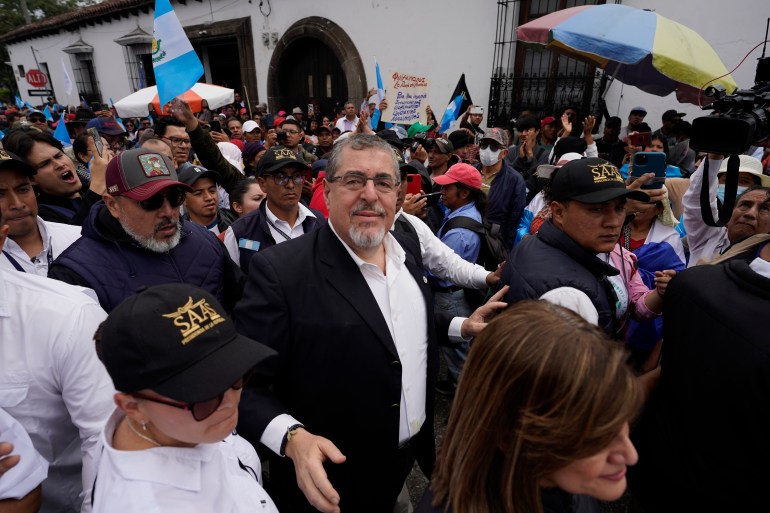
The economy was a key issue in several countries where aspiring candidates took power.
Argentina’s bleak economic outlook dominated the election cycle inflation The rate rises to over 160 percent and its currency crashes. More than 40 percent of the population lives below the poverty line.
Likewise, Ecuador’s economy struggled to recover after the outbreak COVID-19 Pandemic. Experts | have warned that high youth unemployment could be “easy recruits” for criminal gangs, another major problem in this year’s election.
Corruption was also a mobilizing issue. Outgoing President of Ecuador Guillermo Lasso confronted Impeachment hearings until he dissolved the legislature and demanded New elections.
Meanwhile, in Argentina, the previous government began to falter when a federal court convicted then-Vice President Cristina Fernández de Kirchner guilty of corruption last December.
And in Guatemala, a litany from the government Scandals led voters to support the Movimiento Semilla, or Seed Movement, an anti-corruption party led by Arevalo.
“My candidacy and our party have expressed frustration with an intolerable corruption situation,” Arevalo said in an interview with the BBC in November.
Still, prosecutors and rival politicians are on the rise repeated efforts question the legitimacy of Arevalo’s victoryprompting warnings from international observers Election interference.
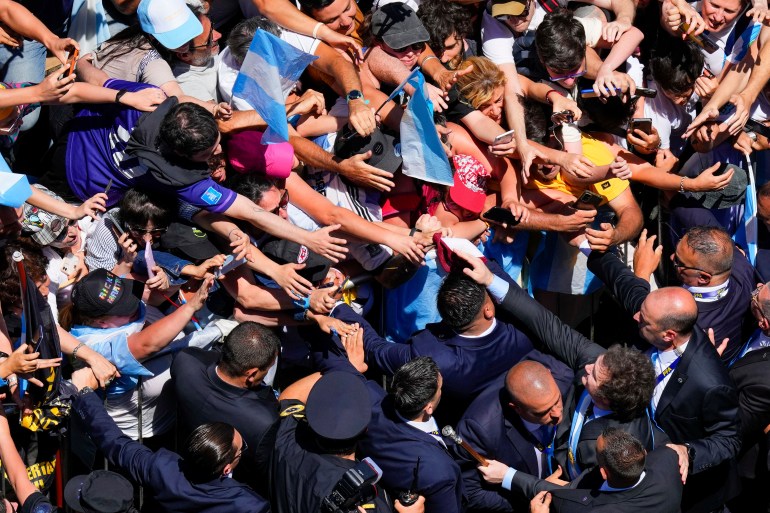
According to commentators such as Pulitzer Prize-winning columnist Andrés Oppenheimer, distrust of government institutions was a unifying theme in the 2023 election.
In an appearance on Mexican radio station Imagen, Oppenheimer attributed the call for change to longstanding frustrations.
“The wave of outsider presidents they’re electing in Latin America – from Chile, Peru, Colombia, Argentina, all the anti-system leaders are ahead in the polls – it’s all part of the same thing,” Oppenheimer said. “There is a wave of unhappiness in the world.”
In some cases, faced with major obstacles such as economic turmoil or corruption, voters turn to politicians they see as “messiahs,” said Romina Del Pla, a left-leaning member of Argentina’s Chamber of Deputies.
“It is an expression of the magnitude of the crisis that we have been living through in Argentina for many years,” Del Pla said of her country’s recent elections.
She added that the thirst for “messiah” figures goes beyond Argentina, pointing to the success of populists like Donald Trump in the United States or Jair Bolsonaro in Brasil.
“We have seen that this phenomenon is international in nature, with Trump, with Bolsonaro and with others, these are the people who have managed to channel this great frustration,” she said.
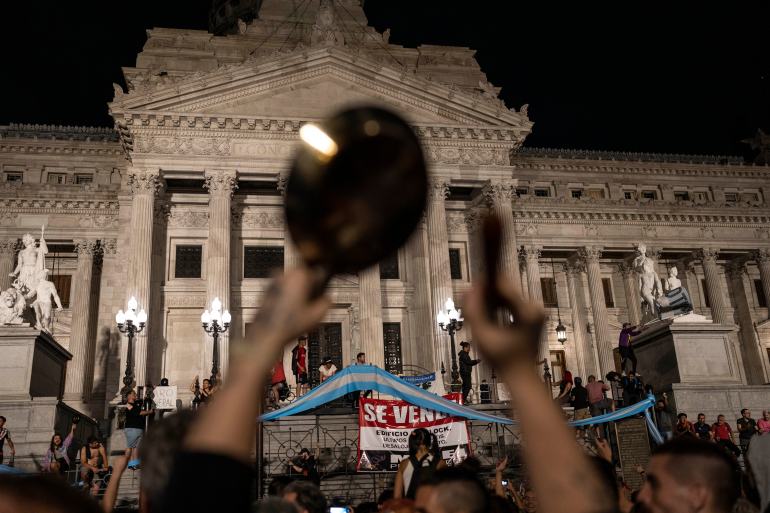
Del Pla noted that during this year’s presidential campaign there was a “fracture” among working-class voters who had traditionally supported major political parties. Many were instead drawn to Milei, who denounced the political establishment as corrupt.
During the election campaign, he often referred to the governing parties as a “political caste,” meaning a solid power structure designed to keep outsiders like him in check.
But for all his appeal to the working class, Del Pla warned that Milei’s economic measures would certainly hit the middle class and poor hardest.
When he took office Milei devalued Argentina’s currency will depreciate by more than 50 percent, driving inflation even higher and weakening consumer purchasing power. He also introduced a legislative package aimed at this revise around 300 laws by decree, with wording that would restrict the right to strike and create the conditions for the privatization of state assets.
His government also vowed to crack down on protests and released guidelines that take a zero-tolerance approach to demonstrations that paralyze traffic.
Critics like Del Pla see the guidelines as an attempt to suppress dissent. Finally, in the early days of Milei’s government, there were clashes with police as protesters gathered against his reforms.
“Now we see that the entire caste they supposedly wanted to fight against is actually in the government,” Del Pla said. “In the end, Milei isn’t that much of an outsider.”
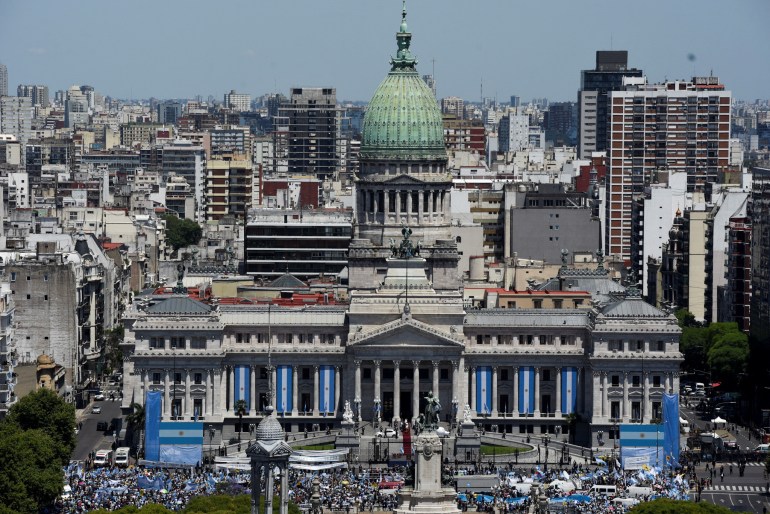
But outside the National Congress building on the day of Milei’s inauguration, his supporters celebrated a leader who they said was upending the political establishment.
“I was fed up with governments using poor people to gain power,” said Norma Fernandez, 57, a geriatric nurse who joined the crowd to see Milei speak. “I think Javier Milei is something different.”
Another supporter, 36-year-old secretary Sol Calvo, expressed her excitement about the new president through tears of joy.
“I’m glad that people have finally changed their minds,” she said of the new political outlook under Milei.
Both women acknowledged that challenges lay ahead under Milei, a relatively untested political leader with radical plans to transform the government. But Fernandez said she believes most people who voted for Milei understood what was coming.
“Milei will get us out of this,” she said. “But it will be difficult.”


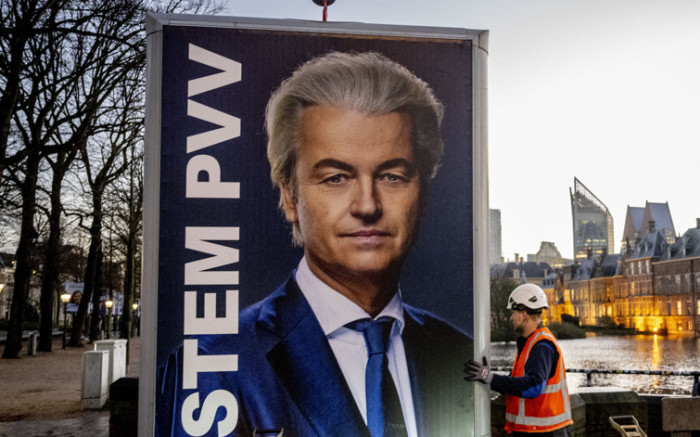

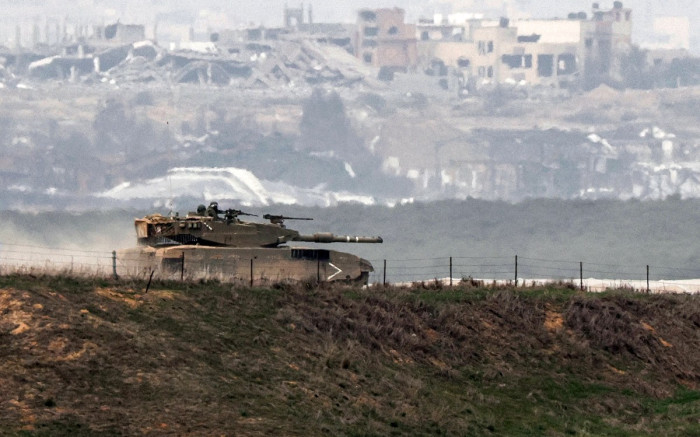

Recent Comments